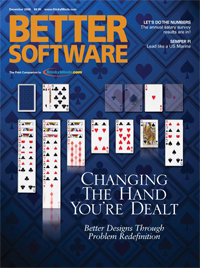Hundreds of Better Software magazine readers and StickyMinds.com users logged on and gave us the scoop on the industry's employment outlook. Find out how your software engineering peers responded to our annual salary survey.
Better Software Magazine Archive:
December 2006



